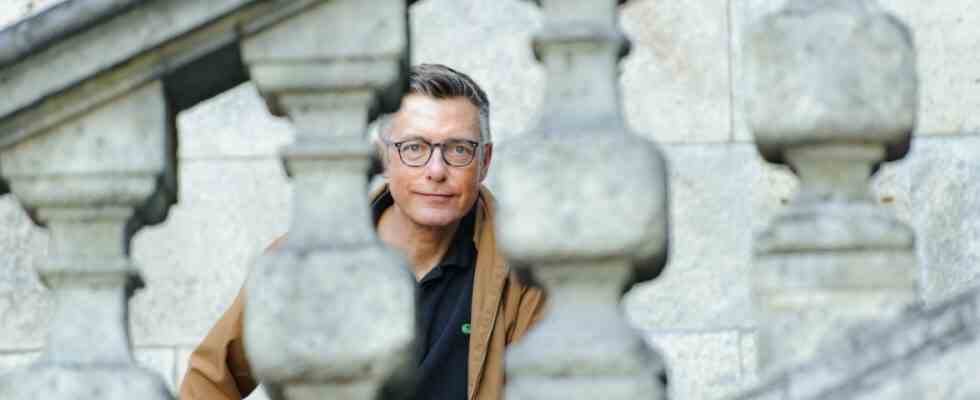Perhaps one should start with a detail. With the headscarf that the young Muslima Amina kept slipping when she was interrogated at the police station, because the needles needed to fasten it were taken away from her and not given back. Such seemingly trivial matters are also important in Björn Bicker’s stories, not only in the cover story “Amina’s smile”. How do we treat each other is one of the big questions. Is the dignity of some people more vulnerable than that of others? And what does it do to a young woman if she repeatedly feels subliminal or overt racism?
Perhaps at some point their repressed feelings will intensify into a great deal of anger. So this woman, who lives in Munich-Milbertshofen and gives boxing courses, freaks out one day on the subway and beats up a man. He finally spat at her. Or hasn’t he? There are no easy answers in Björn Bicker’s work, the complexities in his stories are too complex, the perspectives too different.
There is the first-person perspective of a lesbian psychotherapist, losing her partner and children. There is the Roma boy whose family only experienced violence after being deported from Germany to Kosovo. There is the pastor who is touched by the fate of a former prostitute and her disabled daughter. And there is the middle-aged, white man who, not only as an actor, asks himself: Who is allowed to tell which story?
In any case, Björn Bicker is used to adopting different perspectives. The Munich writer, director, project developer and recently university professor has long been interested in how our society, shaped by many cultures and religions and different levels of prosperity, could function, how more real encounters are possible, especially in cities. As a dramaturge at the Munich Kammerspiele, he developed city projects such as “Bunnyhill” or “Illegal” that had a wide impact twenty years ago. For a play like “Deportation Cast” he received the German Youth Theater Prize in 2012, for the polyphonic choir “What do you think. Urban Prayers” in 2016 the Tukan Prize of the City of Munich. And his new collection of stories “Amina’s smile” (Kunstmann Verlag) was funded by both the city and the Free State of Bavaria with work grants.
cardiac neuroses and other attacks
They have not become quiet stories, on the contrary. Not only do worlds collide here, but there is always a violent bang. In almost every story, what previously developed subliminally escalates; Accidents, attacks, breakdowns are the consequences. The lesbian mother of a family, for example, eventually becomes just as ticked off as young Amina. A lawyer and youth group leader gets a “cardiac neurosis” when he is supposed to drive a rubber dinghy on an excursion on the Isar; Memories from his childhood, escape experiences come up. And a committed teacher with a Turkish background not only reaches her limits in view of the German school system. In any case, these stories never go as expected. And whether through acute trauma or re-traumatization, the characters always lose themselves in some way.
What helps? Small and large gestures of humanity and affection, one could conclude from the stories. Perhaps also the writing itself, the meaning of which is formulated in the book as follows: “Writing so that someone does not disappear.” Write to maybe even heal? “Oh, really, I don’t know, healing is also an overrated category,” says Bicker, however, at the beginning of a therapist in a counseling center for addicts. “We don’t heal anyone here anyway. Right, Ingo?” The colleague replies: “Maybe ourselves.” It’s a start.
Björn Bicker: Amina’s smile, readings: Monday, February 27, 7 p.m., Literaturhaus, Salvatorplatz, literaturhaus-muenchen.de; Thursday, March 30, 7:30 p.m., Rauch & König bookstore, Herzogstr. 84, rauchundkoenig.buchhandlung.de

